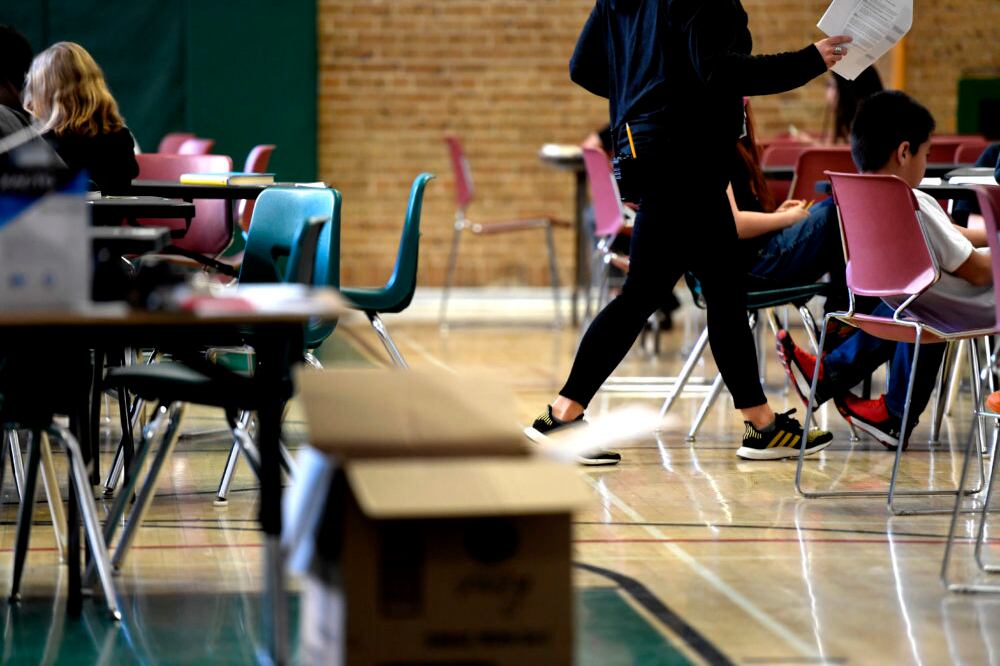The Denver teachers union and Denver Public Schools have reached a tentative agreement that raises wages an average of 8.7% and sets a new starting salary a little above $50,000.
The announcement of a deal comes after a marathon bargaining session between the Denver Classroom Teachers Association and district leaders that started Wednesday morning and concluded Thursday morning.
The previous contract, approved after the 2019 teachers strike, expired Wednesday. Students returned to the classroom Aug. 22.
Districts around the region have announced substantial pay raises as they battle staffing shortages, stiff competition for employees, and inflation.
Major sticking points in the negotiations included pay and caseloads for special service providers. The teachers union had proposed a 12% cost-of-living increase on top of planned raises teachers get for years of experience and education levels, known as steps and lanes. The district had proposed a 3.5% cost-of-living raise, with the average increase closer to 6.2% accounting for steps and lanes.
According to a district press release, returning teachers will see an average 8.7% wage increase this year. The deal will cost the district $40.5 million in teacher compensation in the first year. Raises in the second and third years of the deal will be linked to state funding increases, a district spokesperson said.
Starting salary will be set at $50,130 this year, up from $47,291 last year.
The district is also putting an additional $2.5 million into covering rising health insurance costs for all employees, including teachers. The $2.5 million comes from $9 million the district saved by cutting jobs in its central office, the spokesperson said.
“This new deal represents teaching and learning continuity for our teachers and our students, something desperately needed as we all work to help our students get back on track after the pandemic,” Superintendent Alex Marrero said in the press release.
The Denver Classroom Teachers Association said the deal takes “the necessary steps to attract, recruit, and retain the highest quality educators.”
“The past two years have been the most challenging years for both students and educators,” union President Rob Gould said in a statement. “Educators have worked tirelessly to ensure that our students’ needs are met, despite unprecedented challenges. They have stepped up and have gone above and beyond.”
Though the district touted the “protected, non-classroom time” in the new contract as the best in the metro area, the amount of time has not changed: a 45-minute duty-free lunch every day and at least five hours a week of independent planning time for elementary teachers, with secondary teachers getting an additional 45 minutes on top of that.
Widespread staffing shortages last year meant many teachers lost out on planning time and lunch periods as they covered for missing colleagues. The district did not provide details on how it would protect teachers’ time this school year.
The agreement also calls for the creation of a committee to look at class size concerns and teacher evaluation systems, as well as a new platform to discuss racial equity, including efforts to recruit and retain more educators of color. The majority of Denver teachers are white, while the majority of Denver students are not.
Union members and the Denver school board still need to ratify the agreement.
Senior reporter Melanie Asmar contributed to this report.
Bureau Chief Erica Meltzer covers education policy and politics and oversees Chalkbeat Colorado’s education coverage. Contact Erica at emeltzer@chalkbeat.org.





